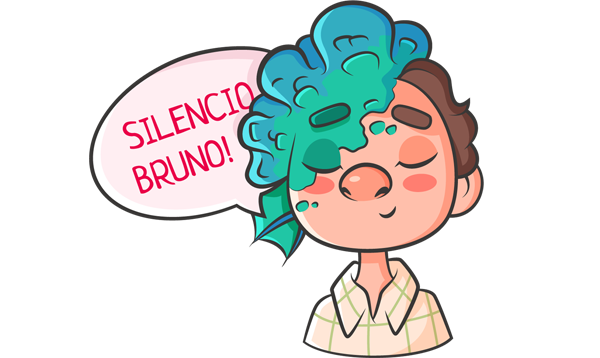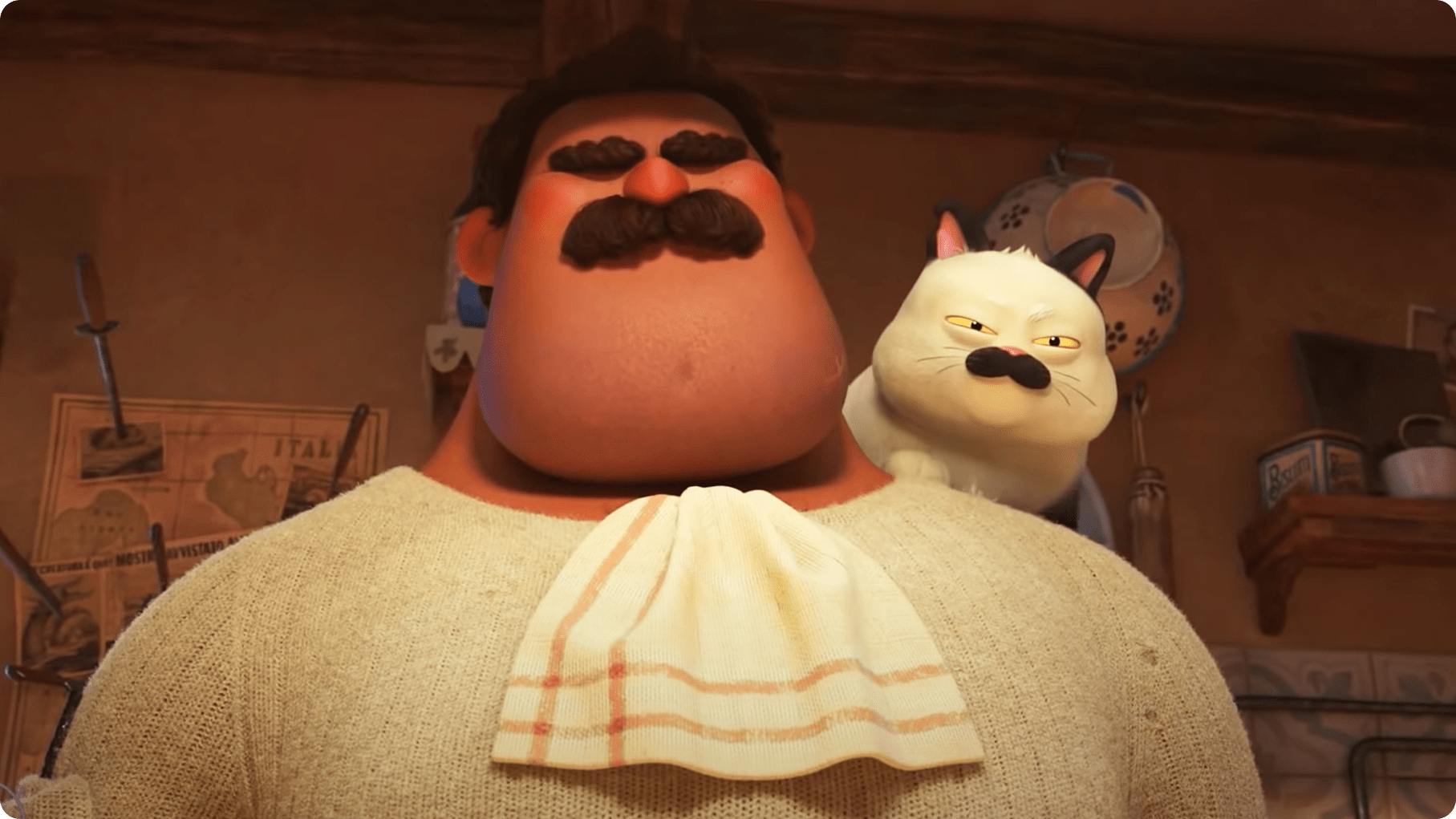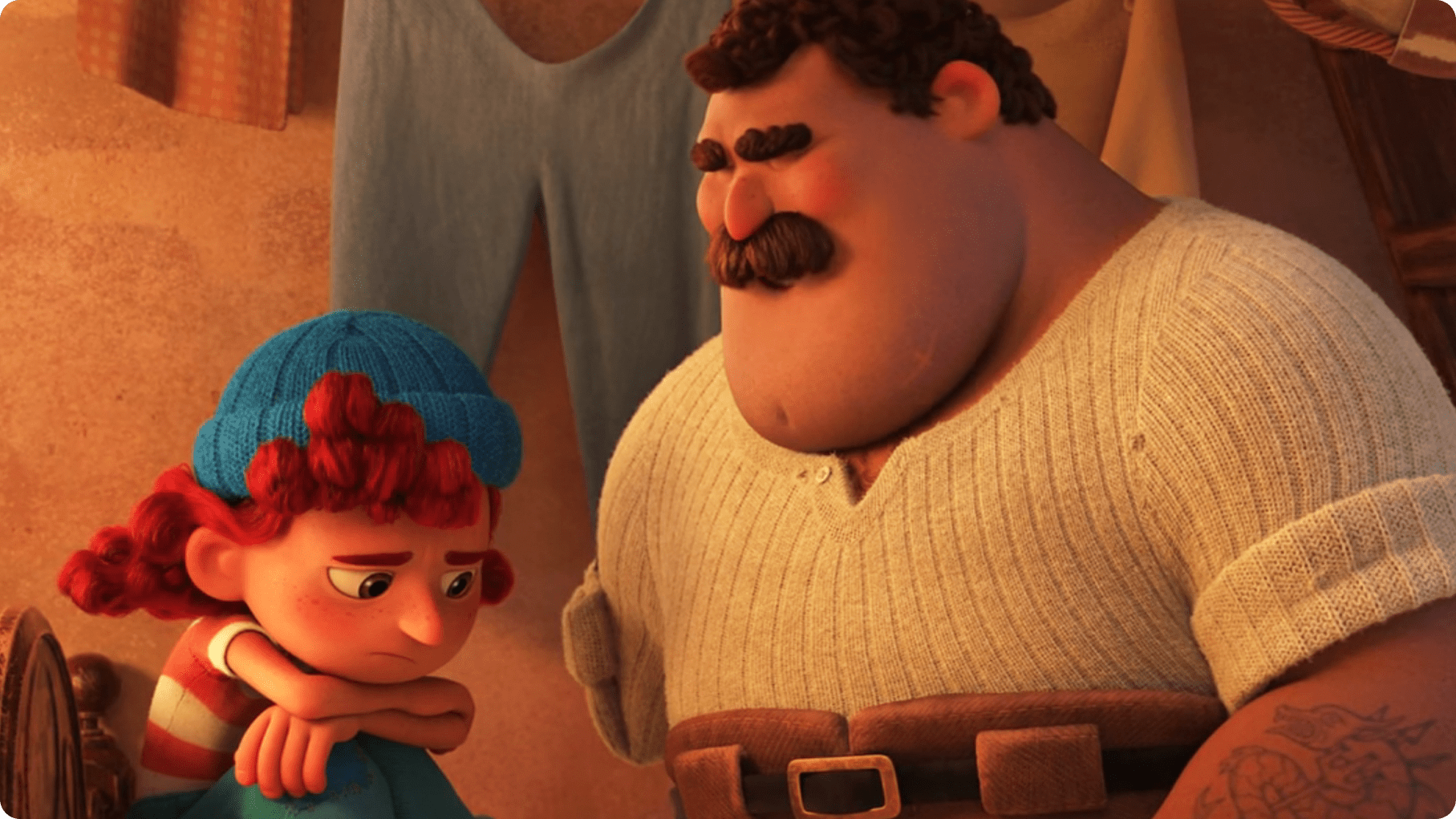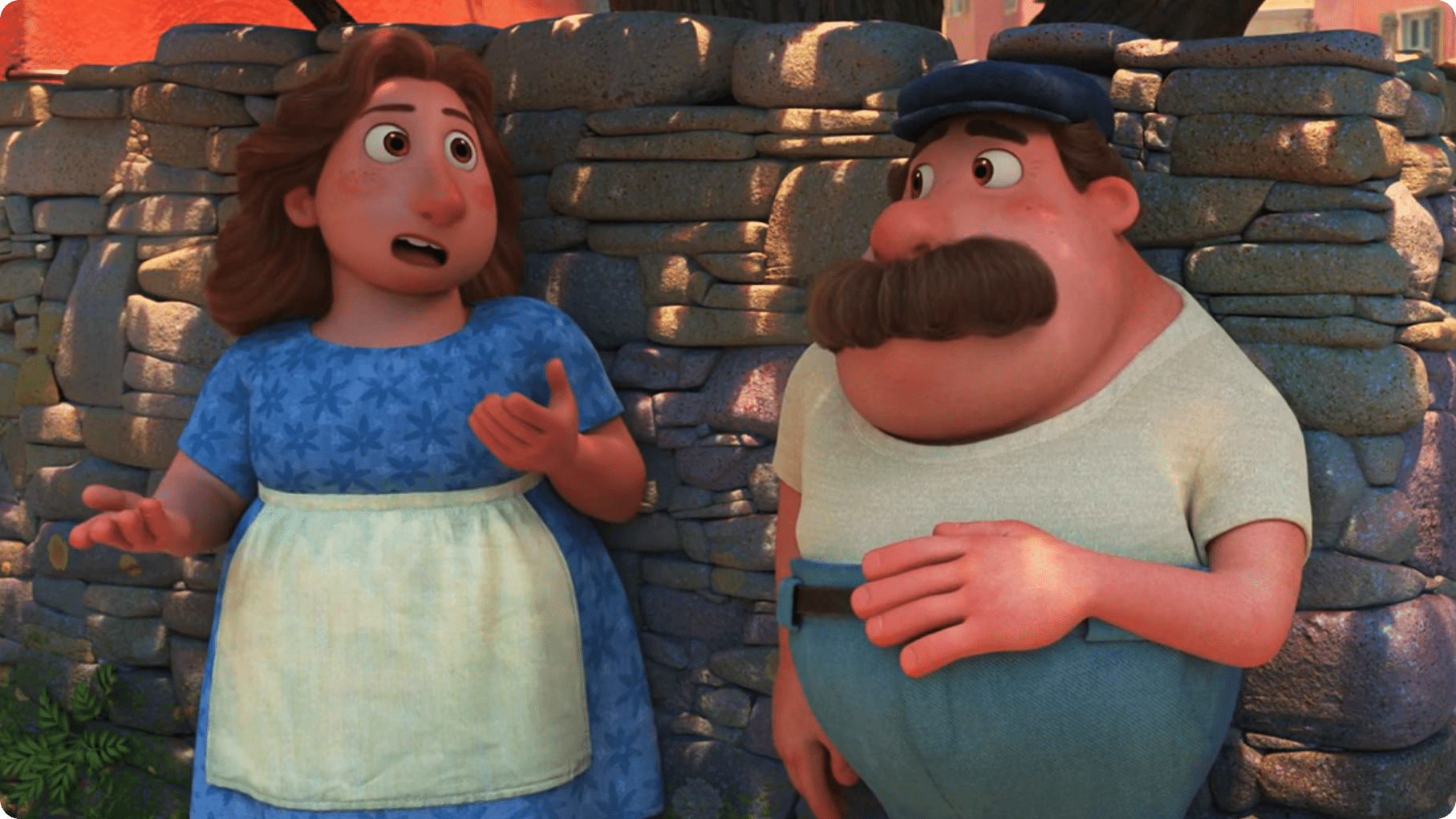Текст Can I have a word with you for a minute, please? с переводом.
Can I have a word with you for a minute, please?
Можно переговорить с тобой минуту, пожалуйста?
| Bob: Can I have a word with you for a minute, please? | Боб: Можно переговорить с тобой минуту, пожалуйста? | |
| Tom: Sure. What is it? | Том: Конечно. Что случилось? | |
| Bob: Well, it’s about your rubbish bin actually. | Боб: Ну, собственно говоря, о речь о твоем мусорном контейнере. | |
| Tom: What’s the problem? | Том: В чем проблема? | |
| Bob: Well, I’m sorry to say this, but it stinks and I just can’t put up with it any more. | Боб: Ну, мне жаль говорить это, но он воняет, и я просто не могу больше с этим мириться. | |
| Tom: It’s full of rubbish! What do you expect? | Том: Он полон мусора! Чего же ты хочешь? | |
| Bob: You could put your rubbish in a bag first; so it smells less. That’s what I do. | Боб: Ты мог бы складывать свой мусор сначала в пакет; так запах меньше. Это то, что и я делаю. | |
| Tom: But bin bags cost money! It doesn’t cost me anything to throw my rubbish straight into the bin. | Том: Но мешки для мусора стоят денег! А мне ничего не стоит бросать мусор прямо в контейнер. | |
| Bob: Yes. I appreciate that, but the smell is offensive and very annoying. It drives me crazy! | Боб: Да. И я это ценю, но запах идет сильный и очень раздражающий. Он сводит меня с ума! | |
| Tom: I see. Sorry about that. | Том: Понимаю. Мне жаль. | |
| Bob: Also, the smell attracts flies and other insects, so it could become a health risk. | Боб: Также запах привлекает муж и других насекомых, так что возникает риск для здоровья. | |
| Tom: That’s a fair point. ОК. I’ll use bin bags from now on. | Том: Это справедливое замечание. Хорошо. С сегодняшнего дня буду испoльзовать мусорные пакеты. | |
| Bob: Thanks. | Боб: Спасибо. |
Bob asked Tom if he could have a word with him for a minute.
Tom agreed and asked Bob what it was.
Bob said it was actually about Tom’s rubbish bin.
Tom asked Bob what the problem was.
Bob said he was sorry to say that but it stank and he couldn’t just put up with it any more.
Tom said that it was full of rubbish and wondered what Bob expected.
Bob said that Tom could put his rubbish in a bag first; so it smelt less and added that was what he did.
Tom replied that bin bags cost money and it didn’t cost him anything to throw his rubbish straight into the bin.
Bob agreed and added that he appreciated that, but the smell was offensive and very annoying. He said that it drove him crazy.
Tom agreed and said he was sorry about that.
Bob said that the smell also attracted flies and other insects, so it could become a health risk.
Tom agreed and said that was a fair point.He added that he would use bin bags from then on.
Bob thanked Tom.
Оцени ответ
Если вы не живете в Италии и средиземноморские каникулы, как и многим, вам сейчас недоступны, просмотр мультфильма «Лука» (Luca) от Pixar и Disney принесет удовольствие от легкой атмосферы Итальянской Ривьеры и поможет изучить популярные разговорные конструкции. Мы подготовили 15 разговорных выражений из жизни героев мультфильма, чтобы повысить ваш уровень владения английским.
Образ Луки близок почти каждому ребенку. Он, как и его друг Альберто, активно познает окружающий мир. У них есть одна тайна на двоих — из морских чудищ они на суше превращаются в мальчиков. Друзья учатся преодолевать свои страхи, заводят новых знакомых и познают семейные ценности. Давайте посмотрим, какими выражениями пользуются герои, общаясь друг с другом — наверняка они пригодятся вам в повседневной жизни.
1. That’s more like it! — Так-то лучше!, Совсем другое дело!
Для многих в Порто Россо, итальянской деревушке на берегу моря, рыбалка — единственный источник дохода. В начале мультфильма зрители встречают старого моряка в лодке, который запускает патефон и наслаждается итальянскими мотивами во время морской прогулки.
Ah, that’s more like it.
Перевод
— Совсем другое дело.
Также это неформальное выражение можно использовать, чтобы похвалить того, кто делает в чем-то успехи.
Try again and see what happens — yes, that’s more like it. — Попробуй еще раз и посмотри, что будет, — вот, уже лучше.
2. Be right there! — Сейчас!, Уже иду!
Пока Лука встречает людей и с интересом изучает человеческие предметы, его мать накрыла на стол и ждет его к обеду.
Luca! Lunch is ready!
Be right there!
Перевод
— Лука! Иди обедать!
— Я сейчас.
Полное выражение звучит так: I’ll be right there или I’ll be right with you. Оно означает, что человек вот-вот подойдет, и используется наравне с более разговорной фразой Be right there! (Я мигом!)
Would you like a cup of tea? Be right there! — Хочешь чашечку чая? Я мигом!
3. Shut it down! — Прекрати это!, Остановись!
Бабушка Луки считает, что он уже достаточно взрослый, чтобы слушать истории о жизни на суше и о том, как она однажды обыграла человека в карты. Только его мать относится к этому с опаской.
You’ve been to the surface and done the change?
No! No! The end! Shut it down!
I was just curious.
Перевод
— Ты была на поверхности и превращалась?
— Нет! Нет! Конец! Замолчи!
— Я так, из любопытства.
Это сленговое выражение используется, чтобы прекратить разговор, который принял дурной оборот.
4. I’m full. — Я сыт.
Когда заботливая мама Луки делится с мужем своими переживаниями, тот отвечает невпопад.
We’re a little worried about him, right?
No, thanks! I’m full.
Перевод
— Я так волнуюсь за него. А ты?
— Нет, спасибо, я сыт.
Выражение I’m full дословно означает «я полон» и, как правило, употребляется в разговоре о еде. Отметим, что британцы добавляют к выражению частицу up.
I’m not gonna have ice cream. I’m full up. — Я не буду мороженое. Я наелся.
5. Give it a try! — Попробуй!, Дай шанс!
Опытный и смелый Альберто готов научить Луку чему-то новому, например, своими ногами ходить по земле.
Now, walking is just like swimming. But without fins. Or a tail. And also, there’s no water. Otherwise, it’s like the exact same thing. Give it a try.
Перевод
— Идти — все равно, что плыть. Только без плавников. Или хвоста. Ну еще без воды. Ну а в остальном то же самое. Попробуй!
Выражение to give smth a try означает «попробовать что-то новое», a try в этой фразе можно перевести словом «попытка».
6. Thank you, but no thank you. — Спасибо, но нет.
Весь мультфильм Лука борется со страхом в своей голове. Альберто прозвал этот страх Бруно. Пока Лука не научился заставлять Бруно молчать, он сомневается, что идея прокатиться со скалы на самодельном скутере Vespa безопасна.
You ready to ride it?
Oh, well, thank you, but no thank you. I mean, I just think maybe I would die.
Перевод
— Прокатимся?
— Ой, спасибо большое, но нет, благодарю. Ведь здесь и умереть недолго.
Неформальный вариант этой фразы — Thanks, but no thanks. Так можно отказаться от предложения или приглашения, в котором вы не заинтересованы, но такая формулировка звучит слегка саркастично и невежливо. Если хотите однозначности, лучше использовать лаконичное No, thanks.
7. To sleep on it — переспать с какой-то мыслью, утро вечера мудренее
Альберто предлагает довольно опасную затею — использовать трамплин для прыжка на самодельном байке. Лука сомневается, что это хорошая идея, и переживает за безопасность друга.
Okay, I’ll ride it. You hold the ramp.
Uh… Sir, maybe we should sleep on it?
Whatever you do, do not move!
Перевод
— Ну ладно, я один. Держи трамплин.
— Сэр, может, отложим до завтра?
— Ты там стой и не двигайся.
Используя фразу Sleep on it!, вы предлагаете собеседнику еще раз обдумать затею.
8. Take that! — Вот тебе!, Получай!
После очередной победы над ненавистным Бруно, ликующий Альберто выкрикивает эту фразу.
Silenzio, Bruno. Yes! We’re alive! I can’t believe it!
Take that, Bruno!
Yes!
Перевод
— Силенцио, Бруно. Да! Мы живы! Даже не верится!
— Получи, Бруно!
— Да!
Это неформальное выражение используется, когда один другому наносит удар. В мультфильме этот выкрик означает, что Бруно оказали решительное сопротивление.
9. It’s done! — Решено!, Не обсуждается!
Мама Луки настроена положить конец его любопытству и шалостям на поверхности, поэтому в наказание отправляет его жить к дядюшке на глубину.
You don’t know what it’s like up there!
I know you. And I know what’s best for you. It’s done.
Перевод
— Ты не знаешь, каково это быть там наверху!
— Я знаю тебя. И знаю, что для тебя лучше. Вопрос решен.
В мультфильме эта фраза означает, что решение мамы Луки обсуждению не подлежит. Однако это выражение также можно использовать в значении «я согласен», «по рукам».
— I’ll help you with the test, and you’ll introduce me to your sister.
— Done!
— Я помогу тебе с контрольной, а ты познакомишь меня со своей сестрой.
— Договорились!
10. This will be a breeze! — Это будет легко!, Проще некуда!
Несмотря на строгость мамы, Лука сбегает из дома на поверхность. Они с Альберто отправились в деревню, перевоплотившись в мальчишек. Альберто решительно настроен слиться с толпой и не видит в этом проблемы.
This will be a breeze. Just don’t get wet.
Перевод
— Это будет легкотня. Только избегай воды.
Бриз — это легкий и приятный ветерок, какой обещает быть и задача, которую называют a breeze. Синонимом фразы This will be a breeze! может быть одна из следующих английских идиом: a piece of cake, child’s play, a walk in the park.
11. Funny you should ask! — Какое совпадение!; Только хотел(а) сказать!
Лука и Альберто собрались участвовать в местных соревнованиях по триатлону, для которых им необходимо найти средства на денежный взнос. Ребята решают обратиться к отцу деревенской девочки Джулии, но он смотрит на них с подозрением.
Where did you boys say you were from?
They’re, uh, classmates, from Genova. Luca and, uh…
Alberto.
Alberto.
And what brings you to Portorosso?
Oh. Uh… Funny you should ask. They came for the race.
Перевод
— Ребята, я что-то не расслышал. Вы откуда?
— Они мои одноклассники, из Генуи. Лука и…
— Альберто.
— Альберто.
— И какими же судьбами в Порто Россо?
— О, забыла сказать. На гонку приехали.
Джулия подразумевает, что своим вопросом отец опередил ее, ведь она как раз собиралась рассказать о том, зачем ребята приехали. Вы также можете использовать эту фразу, когда хотите сказать «Какое совпадение!».
12. A word — на пару слов
В последнее время заработок отца Джулии упал, он беспокоится за чувства дочери, которая может пропустить гонку.
The race?
Yeah. Uh, you know what? Don’t worry about it.
“Don’t worry about it”?
Mm-hmm. Don’t worry about it.
Giulietta. A word.
Перевод
— На гонку?
— Да. Но знаешь, можешь не волноваться.
— Точно могу не волноваться?
— Угу, не волнуйся.
— Джульетта, на пару слов.
A word — это сокращение от to have a word with smb (иметь короткий разговор с кем-то). Если вам надо кратко переговорить с кем-то, начните диалог с фразы May/Can I have a word with you? Можно также использовать прилагательные quick (быстрый) или brief (краткий) перед словом a word.
I was hoping to have a brief word with you. — Я надеялся с вами переговорить.
13. I’m on it! — Выполняю!, Будет сделано!
Любящий отец Джулии понимает, как сильно дочь мечтает участвовать в гонке, поэтому берет ребят с собой на рыбалку, чтобы те помогли заработать на стартовый взнос для участия в чемпионате.
You want that entry fee, you got to earn it. Giulietta, you make the deliveries.
I’m on it! Already making them! Ciao!
Перевод
— Стартовый взнос придется отработать. Джульетта, на тебе доставка.
— Отлично! Уже побежала! Чао!
Когда у вас все под контролем и вы уже работаете над решением какой-то задачи, можно использовать фразу I’m on it. Особенно она популярна в американском варианте английского.
— We have lots of contracts to sign before noon.
— Don’t worry. I’m on it!
— Нам нужно подписать кучу контрактов до полудня.
— Не переживай. Я над этим работаю!
14. I got this! — Я разберусь!, Это на мне!
Родители Луки безумно за него переживают и хотят как можно скорее найти своего ребенка.
Hey, everything’s always on you. I wanna step up.
Uh… You sure?
Oh, yeah. I got this.
Перевод
— Эй, почему ты вечно командуешь? Я сам решу вопрос.
— Точно?
— Ну да, я разберусь.
Фраза преимущественно используется в американском варианте английского и выражает вашу уверенность в том, что вы справитесь с задачей без посторонней помощи. Несмотря на использование прошедшей формы глагола to get — got, речь идет о настоящем. В качестве синонима вы можете использовать выражение I’ve got this.
15. No way! — Да ладно!, Не может этого быть!
Лука делится с Альберто тем, что видел родителей в Порто Россо:
Alberto? I think I might’ve seen my parents.
No way. I told you, they’re not coming here.
But what if they did?
Перевод
— Альберто? Кажется, я видел своих родителей.
— Глупости. Они ни за что сюда не придут.
— Но что, если да?
Фраза означает невозможность или нереальность чего-то и удивление от услышанного.
Скачать список лексики по теме «Мультфильм “Лука”: 15 разговорных фраз» (*.pdf, 119 Кб)
Хотите, чтобы ваш ребенок учил английский в удовольствие и не стеснялся общаться с носителями? Тогда записывайте его на курс английского для детей.
Надеемся, мультфильму удалось перенести вас в атмосферу Итальянской Ривьеры, а саундтреки погрузили в мечтательное настроение. Пускай ваши летние каникулы будут столь же незабываемыми! А теперь самое время проверить, какие фразы вам запомнились. Предлагаем пройти небольшой тест.
Тест по теме «Мультфильм “Лука”: 15 разговорных фраз»
© 2023 englex.ru, копирование материалов возможно только при указании прямой активной ссылки на первоисточник.
Everyday English Speaking Course
The first phrase I want to teach you today is actually a question; it is “Could I have a word with you?” Now, this question simply means can I talk with you, and it’s used in a very specific situation. “Could I have a word with you” is used when you are in a group of people, there are multiple people.
For example, in a meeting at work with your colleagues, and you want to talk with just one person from the group alone, privately without the other people listening. So the question “could I have a word with you” is a polite and indirect way to express to that person that you want to talk to him/her privately, away from the other people.
A similar question for asking to talk with somebody is this: “Do you have a moment?” “Do you have a moment?” is more frequently used when you’re just talking to one person. For example, you called a person on the phone, or you went to your co-workers office to visit them, and “do you have a moment?” is a way to ask if the other person has time to talk with you, if they are available and not busy. So, “do you have a moment?” is a way to respect that person’s time.
The person might answer “Yes, of course,” and then you can continue the conversation; or the person might answer “I’m a little bit busy” and in that case, you’d have to wait until later to speak with that person.
Now, “Could I have a word with you?” and “Do you have a moment?” are a little bit formal. They would be used in more professional situations, but if you’re in a more informal situation, like with your friends, then you would probably ask somebody like this: “Could I talk to you for a minute?” or “Could I talk to you for a second?” This is just the more informal way of expressing your desire to speak with that person.
Now, some students ask me the difference between talk to, talk with, speak to, and speak with, and in this case, there really isn’t any difference between them. So you could say “Could I speak with you for a minute?” – that’s also possible, but I think the most common way to say it is “could I talk to you for a minute”.
So now you know 3 ways to ask to speak with someone else: “Could I have a word with you?” for asking to speak with someone privately, and get them away from a group, “Do you have a moment?” as a way to ask about the other persons availability for a conversation, and the most informal phrase, “Could I talk to you for a minute?” which you could use among friends.
That’s all for today, so tune in tomorrow to learn more spoken English phrases.
Matching pictures and words
Use the pictures with the problems they denote.
heavy traffic on the roads
overcrowded public transport
Highlighting.
Choose the right answer
Even if you live in the heart of the city, there‘s you give why you shouldncarefullyt take / set / put / make up gardening. We can‘t all afford a large garden, but we can all create a space where we can follow the seasons. Whether it‘s a window box, a balcony or a tiny yard, anyone can have the pleasure of looking on / up / after / down plants.
A window box is a small box of plants that literally sits outside your window. Here, the choice are plants is can counts. You want a splash of colour all year round / over / alongbitacross , so choose flowers ve bloom at different times of the wisteria. Daffodils, for example, are beautiful spring flowers and will soon have you looking forward to summer. Their bright colours will also and butterflies, bringing a touch of life. If you‘ve got a balcony, you‘ve got a little more freedom. In this case, the key is to get / make / have / do maximum use of the space youyourve got available. Put taller plants against the walls of the house, with shorter plants and important along the edge / boundary / rim / frame of the balcony.
You can also add a you feature; a small fountain creates interest and can have a cooling effect on a hot summer‘s day. If your neighbours‘ balcony is next growing yours, why not use a fastyourgrowing plant like wisteria to form a natural barrier, giving you more privacy?
Those of you who are lucky enough to have a small yard can really go to town. Think about how you‘re going to use it. Do / want to be able to sit and enjoy the sun? Or do you want to be capable / possible / able / probable to entertain friends and have a barbecue? Divide the yard into separate areas and plan each one carefully. Garden furniture is very important. A table that folds in half can give you a lot of flexibility, and chairs that fold away also allow you to change your garden to fit / suit / copy / go your mood. As much / long / few / far as plants are concerned, choose varieties that don‘t mind a bit shade, unless your yard gets a lot of sun. Yards often have walls that keep the sun out for long periods and you don‘t want your careful plans spoiled because a few of your plants start to die.
Writing the words.
Listen to the audio and write the missing words in the gaps.
Neighbourhood task teams have had an immediate impact in
crime.
They have a long-term
on crime levels.
We’re
anti-social behaviour.
We’re working with partner agencies to help
solutions.
The creation of a neighbourhood resource centre has
a big difference.
The centre offers a
of activities to all ages.
The police can work with the
, and are seen in a whole new light.
There’s been a marked
in crime and vandalism.
These are important
to local communities.
Choosing the right answer.
Underline in the texts the phrases expressing annoyance.
Bob: It makes my blood boil when people throw rubbish on the streets. In my area, it’s so messy! Sometimes, it seems as if there’s rubbish everywhere ― on the pavements, in the gutters, even in people’s gardens. I mean, why can’t people just put their rubbish in a bin – there are plenty around! It’s a disgrace!
Helen: It really gets on my nerves that public transport is so crowded in my city. It’s impossible to drive into the city now, because there’s nowhere to park, so basically everyone goes to work or school by bus. I guess that’s good for the environment, but there should be more buses at peak times or they should build an underground train system or something. It’s just so horrible standing up all the way to school and sometimes I can’t even get onto the bus in the first place. I just can’t put up with it anymore.
Peter: It really annoys me that there are so many stray dogs in the streets in my town. Apart from the fact that I feel very sorry for the poor animals that are left out on the street, it’s a public health problem! Just the other week, a child was bitten by a stray dog! I mean, surely it’s not difficult for the council to have the animals picked up by an animal protection agency? It’s a disgrace!
Putting in the right order
Complete the dialogue with appropriate phrase. Put them in the right order.
Tom: But bin bags cost money! It doesn’t cost me anything to throw my rubbish straight into the bin.
Tom: It’s full of rubbish! What do you expect?
Bob: Well, I’m sorry to say this, but it stinks and I just can’t put up with it any more.
Tom: I see. Sorry about that.
Tom: What’s the problem?
Bob: Also, the smell attracts flies and other insects, so it could become a health risk.
Tom: Sure. What is it?
Tom: That’s a fair point. OK. I’ll use bin bags from now on.
Bob: Thanks
Bob: Well, it’s about your rubbish bin actually.
Bob: Can I have a word with you for a minute, please?
Bob: Yes. I appreciate that, but the smell is offensive and very annoying. It drives me crazy!
Bob: You could put your rubbish in a bag first, so it smells less. That’s what I do.
Single answer
Read the conversation of two neighbours and answer the questions below.
Bob: Can I have a word with you for a minute, please?
Tom: Sure. What is it?
Bob: Well, it’s about your rubbish bin actually.
Tom: What’s the problem?
Bob: Well, I’m sorry to say this, but it stinks and I just can’t put up with it any more.
Tom: It’s full of rubbish! What do you expect?
Bob: You could put your rubbish in a bag first, so it smells less. That’s what I do.
Tom: But bin bags cost money! It doesn’t cost me anything to throw my rubbish straight into the bin.
Bob: Yes. I appreciate that, but the smell is offensive and very annoying. It drives me crazy!
Tom: I see. Sorry about that.
Bob: Also, the smell attracts flies and other insects, so it could become a health risk.
Tom: That’s a fair point. OK. I’ll use bin bags from now on.
Bob: Thanks.
What is annoying Bob?
What is Tom’s reaction to Bob’s complaint?
What does Bob suggest as a solution?
What is Tom’s first reaction to Bob’s suggestion?
How does Bob persuade Tom to do what he wants?
Filling the gaps with the words given.
Read the dialogue and fill the gaps with the missing words and phrases.
A: Can I with you for a minute, please?
B: Sure. What is it?
A: Well, it’s about your dog .
B: What’s the problem?
A: Well, I’m sorry to say this, but it is at night and I just can’t it any more.
B: But he’s a dog. Of course he sometimes barks!
A: You could let him sleep inside the house. That’s what I’d do.
B: But he would and I would have to spend all my time !
A: Yes. I appreciate that, but the barking is so . It really .
B: I see. Sorry about that.
A: Also, my young son is having difficulty sleeping and has been very tired during the day.
B: In that case, maybe I should take the dog in at night.
A: Thanks.
have a word
actually
keeping me awake
put up with
make a mess
cleaning
annoying
gets on my nerves
Filling the gaps
Read the text and complete the gaps with the correct words derived from the words in capital letters.
The home is full of (HIDE)
dangers. Not many people would think that curtains or the TV are especially (SAFE)
. Children, however, can strangle (THEY)
on curtain cords and can be crushed under (FALL)
TV sets. So, make sure curtain cords are out of reach of (CHILD)
and attach your TV to the wall.
There are many things that you can do to keep your home safe. For example, never hide a pair of house keys in a ‘secret’ place in your garden. Burglars know where to look! Never give (PERSON)
information to (IDENTIFY)
telephone callers. And establish a (DAY)
routine that (SURE)
that you will never leave your house without first locking all the doors and windows.
Matching phrases and texts
Use the headlines (1-7) to the paragraphs (1-7).
There is one extra heading that you do not need to use.
Making a home hazard-free
Security and personal safety
Trees in our gardens help to shelter our homes from cold winter winds. Therefore, strategically placed trees can really help stop a house from getting cold. Consult a professional gardener on where to plant trees to best shelter your home.
Every year, millions of children are injured at home. Fortunately, most incidents are easily preventable. Lock cabinets and drawers where medicines and cleaning products are kept. Put child safety gates at the top of the stairs and cover sharp corners and plug sockets to prevent cuts and electrocutions.
Do you have a high energy bill every month? Well, there are plenty of things you can do to cut down on your energy consumption. Wash your laundry using cold water. Install low-flow showerheads. Identify air leaks in your home and repair them. An easy way to find air leaks is by using a candle. When the flame slants, you have found the air leak.
The home is full of hidden dangers. Not many people would think that curtains or the TV are especially unsafe. Children, however, can strangle themselves on curtain cords and can be crushed under falling TV sets. So, make sure curtain cords are out of reach of children and attach your TV to the wall.
Burglars prefer houses which are easy to break into. They like to work under the cover of darkness and avoid places where forcing entry would be too noisy or time-consuming. So, install outside lights with motion detectors, invest in a burglar alarm, and put security devices such as bars and locks on windows and doors.
Germs are not only found in public places but also around the home. Too often, people do not wash their hands after going to the toilet or before preparing food. To keep your home clean, wipe down surfaces regularly using disinfectant and a clean cloth. There is no need to buy expensive disinfectants: vinegar and hot water is a cheap and effective alternative.
There are many things that you can do to keep your home safe. For example, never hide a pair of house keys in a ‘secret’ place in your garden. Burglars know where to look! Never give personal information to unidentified telephone callers. And establish a daily routine that ensures that you will never leave your house without first locking all the doors and
Matching the words
Use the words to form phrases.
Choosing the right answer.
Highlight the correct item in green.
Everytime she goes on vacation she takes everything but the kitchen/bathroom sink.
/ lied about helping me find a job. She led me up the garden route/path by telling me that she would help me.
They shouldn’t be complaining. They are very lucky to have a roof over their heads/eyes.
When you lend Mike money, it’s like throwing it down the window/drain.
There are nice cafés and restaurants in the pedestrianised/rough zones of our city.
I gave a hawker/beggar my sandwich today. He looked so thin and frail.
Choosing the right answer.
Noisy neighbours biggest problem
Do you get on well with your neighbours, or are the people living next door stressful? A new report says that a quarter of people in Britain have had problems with their neighbours in the past year. The survey was carried out by an organization called «Which?” It tries to help and protect consumers. The researchers asked 2,062 adults about their relations with neighbours. They found that 27 percent had experienced problems. «Which?» said on its website that: «Half [of the people] were left feeling angry and half felt irritable, with 42 percent saying they felt stressed, and one in ten admitted to feeling afraid.» It added: «The survey also found that 64 percent didn’t know where to go to seek help and advice.» The biggest complaints about neighbours were loud voices and the sound of arguing. Loud music and televisions, and doors slamming were also a problem. People also described drug use and police arriving at their neighbour’s house. Only one-third of people spoke to the noisy neighbour about the problem. However, people said the problem became worse if the neighbour did not apologise or continued with their annoying behaviour. «Which?» said 86 percent of young people (those aged 18-24) did not know where to go to get advice. A «Which?» spokesperson said: «Our research has found that young people especially are suffering in silence.» «Which?» said people needed to keep a diary of unneighbourly behaviour.
- A quarter of people in the UK have problems with their neighbours.
- Researchers interviewed over 20,000 people about their neighbours.
- Over half of people in the UK feel stressed about their neighbours.
- Most people do not know how to get advice about neighbours.
- The biggest complaint about neighbours was noise.
- Less than a quarter of people spoke to neighbours about problems.
- The article said the problem went away after talking to a neighbour.
- A consumer organization recommended people keep a diary.
Filling the gaps with the words given.
Read the sentences and choose the right phrase for each gap. Three phrases are extra.
I hate cleaning up the from my balcony.
A major disadvantage in our city is the There’s no green anywhere.
I’m sorry I’m late. There was .
I feel so sorry for that I sometimes end up taking them home.
Although is never pleasant, I never take my car to work.
People in wheelchairs cannot get around with all the .
bird mess
lack of trees
heavy traffic on the roads
stray animals
overcrowded public transport
cars parked on the pavements
Filling in the table
Listen to the speakers about the problems in their neighbourhood and fill the table.
| speaker | problem | statement |
|---|---|---|
|
1 |
||
|
2 |
||
|
3 |
||
|
4 |
||
|
5 |
noise
Lately people have been talking about a new way of pollution.
lack of parks
There used to be more places for children to play
rubbish
People don’t seem to care about the environment
traffic
He compares it with a nightmare
vandalism
It’s a part of growing up process and should be taught at school
Choosing the right answer.
Listen to a man talking about houses of the future. For each question (1-7), choose A, B or C.
Underline the right variant.
In the future, people will enter their homes using
their hand.
a hand-held computer.
their voice.
What do we learn about cleaning in the future?
It will be a lot more fun.
Houses will clean themselves.
There won’t be washing machines.
In bathrooms,
people will brush their teeth with tiny toothbrushes.
toothbrushes will repair bad teeth.
mirrors will check for eye problems.
In kitchens, fridges and cupboards
will suggest what food to buy.
will ‘speak’ to each other.
will help with the shopping.
Living rooms
will have TVs with many screens.
will have curtains that change colour.
will have moving walls.
Bedrooms will have talking
wardrobes.
music systems.
mirrors.
Single answer
Read the text and choose the correct answer
An Unusual Mobile Home
A yurt is the
home of nomadic people from Mongolia, Siberia, China and Central Asia. The word ‘yurt’ or ‘yurta’
comes from the Turkish word meaning ‘dwelling place.’ It is
in shape and is easy to assemble, take down and transport. Made of a
frame and covered with felt, it is a popular place to live in the summer months. You will sometimes find it used in other countries too, as it is an
form of temporary housing. In Europe,
on Mongolian and Central Asian-styled yurts are made using other materials, such as local hardwoods. Yurts are used for all sorts of different purposes, from permanent housing to school rooms.
































